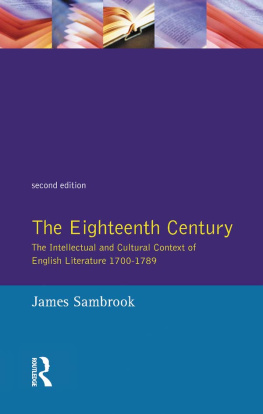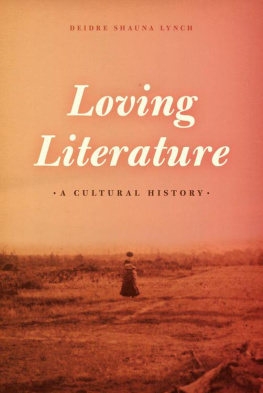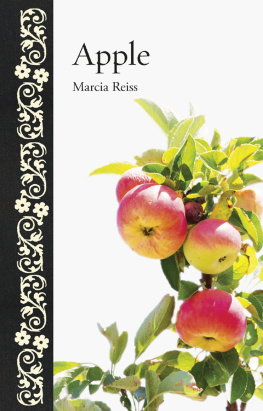The Meaning of Literature
BY THE SAME AUTHOR
| Toward Dramatic Illusion: Theatrical Technique and Meaning from Hardy to "Horace" |
| Tragedy and Truth: Studies in the Development of a Renaissance and Neoclassical Discourse |
| The Discourse of Modernism |
| The Uncertainty of Analysis: Problems in Truth, Meaning, and Culture |
Timothy J. Reiss
The Meaning
of Literature
Cornell University Press
IthacaandLondon
Copyright 1992 by Comell University
All rights reserved. Except for brief quotations in a review, this book, or parts thereof, must not be reproduced in any form without permission in writing from the publisher. For information, address Cornell University Press, 124 Roberts Place, Ithaca, New York 14850.
First published 1992 by Comell University Press.
Excerpt from Archy and Mehitabel by Don Marquis, copyright 1927 by Doubleday, a division of Bantam, Doubleday, Dell Publishing Group, Inc. Used by permission of the publisher.
International Standard Book Number 0-8014-2646-4 (cloth)
International Standard Book Number 0-8014-9947-X (paper)
Library of Congress Catalog Card Number 91-23344
Printed in the United States of America
Librarians:Library of Congresscataloging information
appears on the last page of the book.
The paper in this book meets the minimum requirements
of the American National Standard for Information Sciences
Permanence of Paper for Printed Library Materials, ANSI Z39.48-1984.
For Patricia J. Penn Hilden
frail gestures and small hands
jars in Tennessee
a cabin, nine bean-rows
and a hive
[This page intentionally left blank.] |
|
i am the artist
a creator and a demi god
it is ridiculous to suppose
that i should be denied
the food i need in order
to continue to create
beauty i tell you
plainly mister fly it is all
damned nonsense for that food
to rear up on its hind legs
and say it should not be eaten
you have convinced me
said the fly say no more
and shutting all his eyes
he prepared himself for dinner
and yet he said i could
have made out a case
for myself too if i had
had a better line of talk
of course you could said the spider
clutching a sirloin from him
but the end would have been
just the same if neither of
us had spoken at all
boss i am afraid that what
the spider said is true
and it gives me to think
furiously upon the futility
of literature
archy
Don Marquis, Archy and Mehitabel
Acknowledgments
Most of the research work for this book was done on two occasions, made possible by three awards: a fellowship from the Social Sciences and Humanities Research Council of Canada in 1983-84, one from the American Council of Learned Societies in 1986-87, and an Emory University Faculty Award in the same year. In the summer of 1989 I was able to complete the European research, thanks to a New York University Research Challenge Fund Grant. New York University also helped with final preparation. I am most grateful to all the funding bodies.
Some bits and pieces of the work have appeared in print before. A few pages of Chapter 2 are taken, not entirely verbatim or unadulterated, from " Montaigne and the Subject of Polity," in Literary Theory/Renaissance Texts, ed. Patricia A. Parker and David Quint ( Baltimore: Johns Hopkins University Press, 1986), pp.. The earliest version of Chapter 10 was given as a lecture at Camrose Lutheran College in Alberta in late 1984 and will appear in the Acts of the colloquium of which it was a part. All have been substantially rewritten even in those cases in which the frame remains essentially the same. I thank all the presses concerned for permission to use these materials here.
All translations are my own, except as noted.
The staffs of many libraries have been generous with their facilities and their time. Particularly, I must thank those of the Ashmolean, the Bodleian, and the Taylorian in Oxford; the Archives and Bibliothque Nationales in Paris; the Bibliothque Royale in Brussels; and the various libraries of the Katholieke Universiteit Leuven. In the last case, I thank Jos Lambert for the liberality of his friendship. The staffs of the Emory and New York University libraries have been equally forthcoming. In the former, Julia L. Jones and Margaret Whittier were helpful far beyond the call of their jobs. I thank them both.
Almost all the primitive versions of these chapters were given as lectures at various institutions in North America and Europe. I thank the audiences for their frequently generous feedback. I cannot possibly acknowledge all those who intervened on such occasions (even if I knew them), but I would like to thank Julio Rodrguez Luis for a question that made me rethink parts of Chapter I; Mary Beth Rose and Jacques Dubois for remarks about Chapter 4 (and the latter for his warm hospitality in Lige); Joan DeJean for reading that same chapter and Chapter 7; Robin Howells for correcting some errors in Chapter 7; Wlad Godzich, Vladimir Krysinski, Perry Meisel, and Walter Moser for comments on Chapter 10; and Marc Angenot, Frances Ferguson, Patricia J. Hilden, Darko Suvin, and George Szanto for pushing me on Chapter 9. What is now Chapter 8 was first a response to an invitation by Christie McDonald. Patricia Hilden was further gracious enough to take time from her own work to read the Introduction and Epilogue. In writing or in collegial exchange, more people gave generously of their time and thought: I would like to record my gratitude particularly to Daniel Javitch, for divers moments of wisdom and pieces of information, and Eugene Vance, for conversations over many years. I further thank Donald R. Kelley and the other Press reader, both of whom gave a long typescript exquisitely careful attention. Much of the material now in this book has provided grist for graduate seminars at Emory University, the Graduate Center of the City University of New York, the State University of New York at Binghamton, and New York University. The students in those seminars have a share in what that material has now become. As usual, I am sincerely grateful to Bernhard Kendler, Kay Scheuer, Kim Vivier, and the staff of Cornell University Press.
Contents | i. | | A Poetics of Cultural Dismay |
| | 2. | | | 3. | | The Invention of Literature |
| | 4. | | Violence and the Humanity of Reason |
| | 5. | | Literature and Political Choice |
| | 6. | | Politics and Reason, Ethics and Aesthetics |
| | 7. | | Critical Quarrels and the Argument of Gender |
| | 8. | | | 9. | | | 10. | | Sublimity and the Ends of Art |
|
|
|
|







